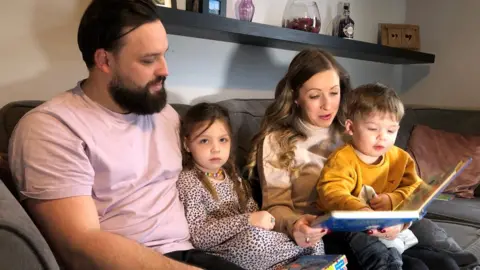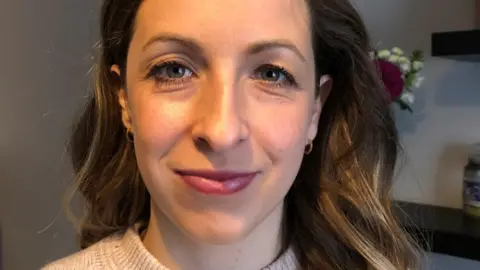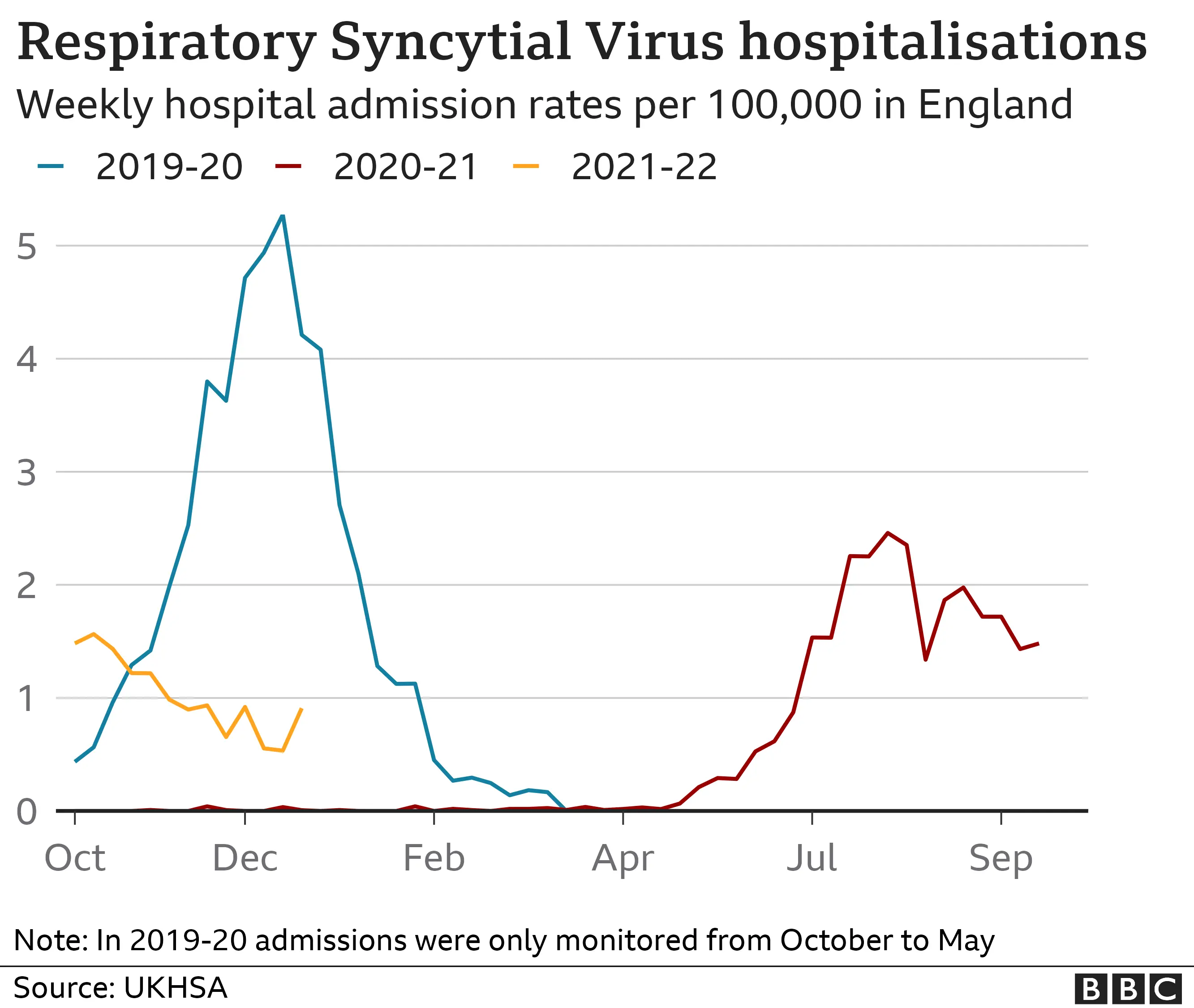Southampton family warns of RSV symptoms in children
 BBC
BBCA mother has described how both of her children were admitted to hospital with respiratory syncytial virus (RSV).
Christine Burlison's daughter and son both contracted the respiratory condition as babies.
RSV affects more than 90% of children before they are aged two and symptoms are usually similar to a cold or flu.
There is currently no cure, but University Hospital Southampton are working on a large-scale clinical trial to develop a vaccine.
Mrs Burlison's daughter Aria was 11 days old when she began struggling to breathe and was taken to hospital in an ambulance the next day.
Doctors said she had developed bronchiolitis, a blocking of the little airways in the lungs, as a result of RSV.
Her mother said: "The most worrying thing that you can face as a mum is to be worried about your child's breathing.
"Knowing there was a concern just filled us with so much anxiety and of course you don't sleep because you're just wanting to watch her the entire time and make sure she's OK."

Aria recovered, but after her little brother Jude was born, he also got RSV and eventually recovered.
"When he was breathing his chest was recessing and it was going underneath his ribs, it looked like he was really struggling to breathe so that's when we knew we needed to get him checked over," Mrs Burlison said.

How to spot RSV
- RSV starts with a blocked or runny nose and can progress to a dry cough, fever and sometimes breathing problems
- For most children, it will be mild and can be treated at home with infant paracetamol or ibuprofen
- Call your GP or seek medical advice if your child is not feeding normally, is breathing fast or has a high temperature that will not go down
- Call 999 if your child is exhausted from trying to breathe - you may see the muscles under their ribs sucking in with each breath or they may be pale and sweaty

Prof Paul McNamara, a child respiratory health expert, says it's not unusual for both children to have caught RSV, but there's been an increase in cases since the Coronavirus pandemic.
He said: "[Wards] just get full up with the number of babies coming into hospital with this condition, largely caused by RSV, it's not just the general paediatric wards, it's also the intensive care units."

Dr Katrina Cathie, consultant paediatrician at the Southampton hospital, said: "For an individual baby, [the vaccine] could protect them from getting seriously unwell and from being admitted to hospital.
"Then on a wider scale, if you prevent a larger number of babies coming to hospital that reduces the pressure on the NHS."

Follow BBC South on Facebook, Twitter, or Instagram. Send your story ideas to [email protected].
